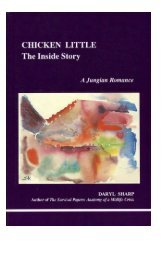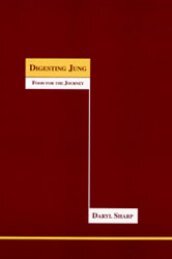Personality types: Jung's model of typology - Inner City Books
Personality types: Jung's model of typology - Inner City Books
Personality types: Jung's model of typology - Inner City Books
- No tags were found...
Create successful ePaper yourself
Turn your PDF publications into a flip-book with our unique Google optimized e-Paper software.
Introversion and the Four Functions 67duced by the object and so gives rise to a new psychic datum."75 For example, it used to be thought that the so-calledscientific method was completely objective, but it is now acknowledgedthat the observation and interpretation <strong>of</strong> anykind <strong>of</strong> data is colored by the subjective attitude <strong>of</strong> the observer,which necessarily involves both one's expectations andone's psychological predisposition. 76Jung points out that our knowledge <strong>of</strong> the past depends onthe subjective reactions <strong>of</strong> those who experienced and describedwhat was happening around them. 77 In this sense, subjectivityis a reality as firmly based in tradition and experienceas is orientation toward the objective world. In other words,introversion is no less "normal" than extraversion.Both, <strong>of</strong> course, are relative. Where the extravert sees theintrovert as unsociable, unable or unwilling to adapt to the"real" world, the introvert judges the extravert as shallow,lacking in inner depth. There is as much and as little justificationfor the one attitude as for the other, since each has itsstrengths and its weaknesses.One <strong>of</strong> the signs <strong>of</strong> introversion in a child, Jung notes, "is areflective, thoughtful manner, marked shyness and even fear<strong>of</strong> unknown objects":Very early there appears a tendency to assert himself over familiarobjects, and attempts are made to master them. Everythingunknown is regarded with mistrust; outside influencesare usually met with violent resistance. The childwants his own way, and under no circumstances will he submitto an alien rule he cannot understand. When he asks questions,it is not from curiosity or a desire to create a sensation,but because he wants names, meanings, explanations to give75 Ibid., par. 622.76 See, for instance, Fritj<strong>of</strong> Capra, The Tao <strong>of</strong> Physics (New York: Bantam<strong>Books</strong>, 1984).77 Psychological Types, CW 6, par. 622.










